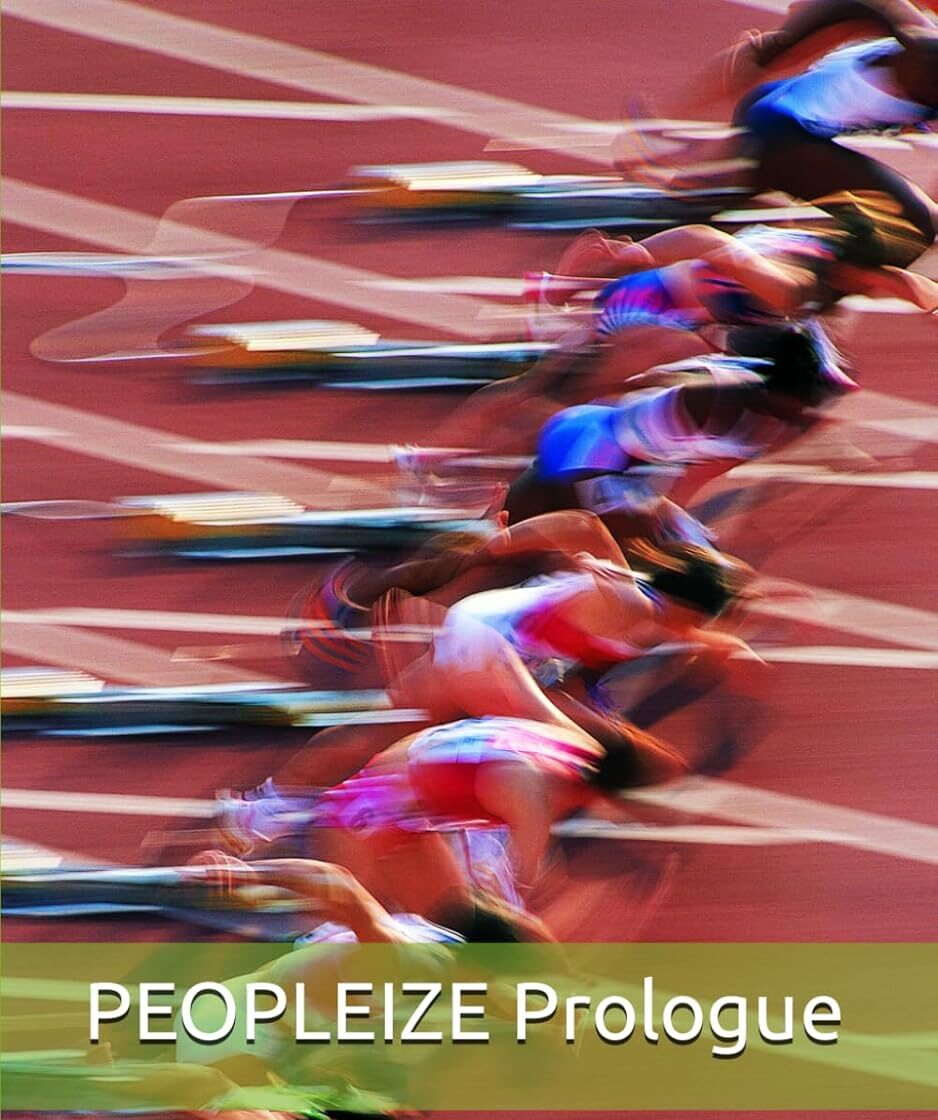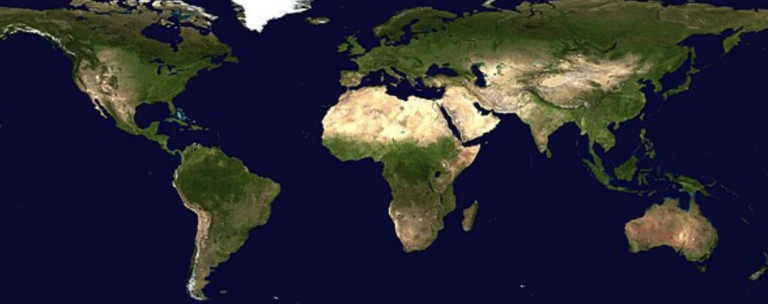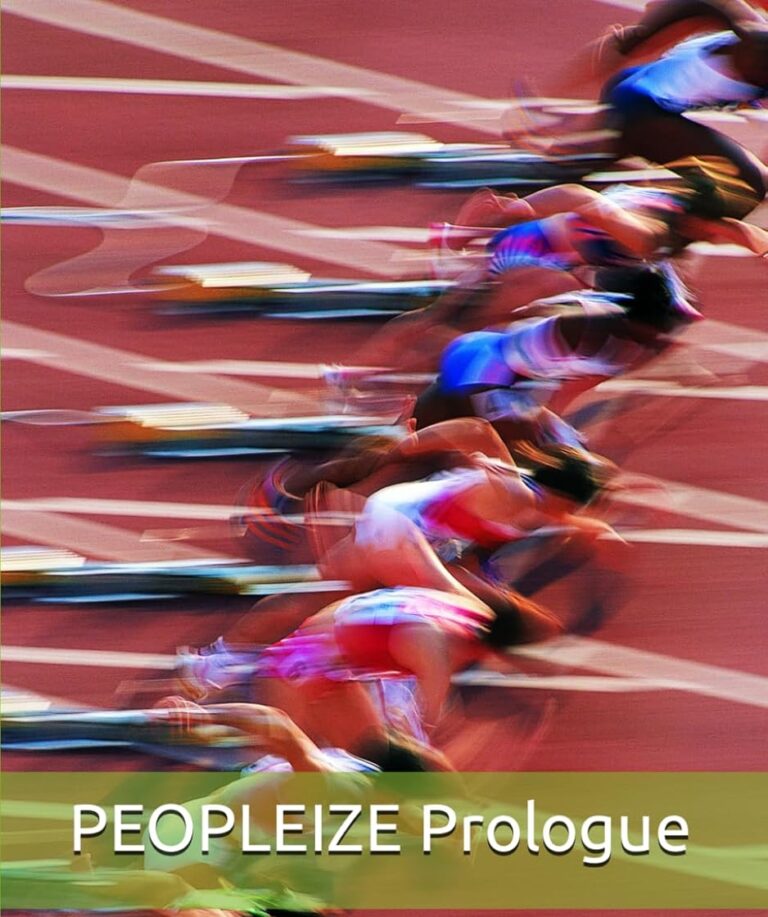Chapter 3
Governance By The PEOPLE
The annals of history bear witness to the various forms of governance that have shaped the destinies of nations. From autocratic rule to democratic ideals, the story unfolds through the rise and fall of leaders. However, nestled within the corridors of power are echoes of disparity and detachment from the true needs of the people.
Examples from European history vividly illustrate instances where monarchies and governments have controlled and oppressed their own populations. The oppressive rule of certain monarchs in medieval Europe, such as King John of England, who exploited his subjects through heavy taxation, serves as a poignant illustration. Similarly, the absolutist regimes of Louis XIV in France and Charles I in England were characterized by centralized power that often disregarded the well-being of the common people.
In more recent times, the totalitarian regimes of the 20th century, such as those under Mussolini in Italy and Franco in Spain, exemplify governments that prioritized their own interests over the welfare of the populace, suppressing dissent and curtailing individual freedoms.
Our cultural stories, deeply ingrained in societal consciousness, have played a pivotal role in shaping perceptions of leadership. The archetypal hero, often portrayed as a monarch or a singular leader, has become the symbol of governance in the collective imagination. These tales have, inadvertently, reinforced the notion that effective leadership is synonymous with an individual figurehead.
Enter “PEOPLEIZE,” an ideology that challenges the prevailing narratives and introduces a new breed of hero – a collective of citizens shaping the destiny of their communities. In this paradigm, governance is not a tale of a solitary ruler but a saga of collaborative decision-making and shared responsibility.
This chapter serves as a preliminary overview of a possible PEOPLEIZE governance of the future, drawing inspiration from historical lessons and offering glimpses into its core principles and transformative concepts. It is a prelude to a more comprehensive exploration that awaits in the upcoming PEOPLEIZE chapters, where intricate details of implementation and structural nuances will be unveiled.
PEOPLEIZE Evolution For Governance:
As we journey through the past two millennia, the historical narrative of European governance reveals a recurring theme, a concentration of power in the hands of kings, presidents, and prime ministers. These leaders, while influential, have often prioritized personal legacies and the interests of the ruling class, leaving the broader population on the periphery.
This historical analysis serves as a precursor to understanding the need for a paradigm shift in governance, a move towards a future where the reins of power are not held by a select few but are distributed among the people themselves. Each citizen will have the opportunity to serve in the country’s senate, congress, or parliament. The members of the government are selected randomly from each job union (teachers, financial professionals, carpenters, nurses, farmers, etc.). This ensures that every social and industry sector will have two voices to guarantee representation. Since each citizen receives the same salary, this ensures that they can dedicate three years to working with the parliament and then return to their company at the end of their term. The goal is to ensure that politics is not a career but a service for collaboration within the different industries and social groups of the country and Earth.
The cornerstone of PEOPLEIZE governance lies in its departure from traditional power structures. Imagine a parliament, congress, senate, or house of commons where the occupants are not career politicians but everyday citizens randomly selected. These individuals, representing various industries and unions, bring a kaleidoscope of perspectives to the decision-making table. Term limits prevent the entrenchment of power, ensuring a continual infusion of fresh voices and ideas. The PEOPLEIZE model advocates for citizens, after their term, to return to their communities, bridging the gap between governance and the grassroots.
Justice System Reimagined: A Model of Citizen Centric Justice
In the envisioned world of PEOPLEIZE, the transformation extends beyond governance to a fundamental reimagining of the justice system. Here, courtrooms diverge from traditional setups where judges hold authoritative positions. Instead, justice is dispensed by juries comprising twelve randomly selected citizens. This departure from a professional judiciary stands as a testament to the belief in harnessing the collective wisdom of the people to ensure a fair and impartial legal process.
In a PEOPLEIZE justice system, the emphasis is not solely on legal expertise but on diverse perspectives drawn from the broader citizenry. Consider a case involving financial matters; a jury might include individuals with backgrounds in finance, but also those from unrelated fields, providing a multifaceted lens through which to examine the case. This composition aims to bring a balance of professional insight and common-sense reasoning to the forefront of legal proceedings.
From Punishment to Rehabilitation:
The paradigm shift goes beyond the selection of jurors; it permeates the very essence of punitive measures. In the PEOPLEIZE justice system, the punitive approach of imprisonment takes a backseat to a more holistic model centered on counseling and therapy. The focus is on rehabilitation, acknowledging that individuals may have underlying issues that contributed to their actions.
For instance, in a case involving non-violent offenses, the PEOPLEIZE justice system might opt for community service, counseling, or educational programs tailored to address the root causes of the behavior. By fostering rehabilitation over retribution, the system aims to reintegrate individuals into society as productive and empathetic citizens.
One of the distinctive features of the PEOPLEIZE justice model is its community-oriented approach. Sentencing decisions are not isolated events but involve the active participation of the local community. Community members, chosen randomly, contribute to the determination of appropriate sanctions, ensuring that the repercussions align with community values and expectations.
This community involvement not only democratizes the justice process but also strengthens the social fabric, emphasizing a collective responsibility for the well-being and rehabilitation of each member. It introduces a sense of accountability that extends beyond the courtroom and into the very communities affected by legal decisions.
Empowering the Citizenry:
In the PEOPLEIZE justice system is not just a theoretical construct; it is a tangible embodiment of citizen empowerment. By entrusting legal decision-making to randomly selected jurors, focusing on rehabilitation, and involving communities in the sentencing process, PEOPLEIZE seeks to redefine justice as a collaborative and inclusive endeavor. The goal is to create a system that not only dispenses fair judgments but actively contributes to the well-being and unity of the society it serves.
The narrative of PEOPLEIZE is not confined to theoretical frameworks but is woven into the daily lives of citizens. New fairy tales emerge, celebrating collective decision-making and the resilience of communities. The hero is not a monarch with a crown but a teacher, a farmer, or a healthcare worker, representing the voices of their communities.
These fairy tales celebrate the strength of diversity, the power of collective wisdom, and the resilience of communities guided by the principles of PEOPLEIZE governance.
As we close this preface chapter, a shift in governance towards a PEOPLEIZE future unfolds before us. This overview provides a glimpse into the foundational principles of PEOPLEIZE, offering a taste of what might be possible in a governance structure that places the power in the hands of the people. However, the intricate details of implementation and structural nuances will be explored in depth in the upcoming PEOPLEIZE chapters.
The story is still unfolding, and the chapters that follow will illuminate the path towards a future where citizens actively participate in shaping policies, dispensing justice, and steering economic systems towards the well-being of their communities. The forthcoming PEOPLEIZE books promise a comprehensive exploration of this transformative vision, inviting readers into a world where governance is not only participatory but deeply rooted in the principles of equality, collaboration, and collective empowerment.
Chapter 4
Reshaping Prosperity: The PEOPLEIZE Economic Vision
Welcome to the heart of the PEOPLEIZE Economic Vision, a radical departure from conventional economic paradigms. This chapter offers the first view into a world where wealth is not confined by borders, where financial systems prioritize people over profit. In the PEOPLEIZE vision, we explore the redefinition of currencies, equalizing salaries globally, revolutionizing work week, no interest rates, travel experiences, and establishing a foundation of free education for all. This is not just a conceptual shift; it’s a call to reimagine the very foundations of our economic structures for the betterment of people on Earth.
Redefining Currency and Equalizing Values:
In the realm of PEOPLEIZE, currencies become facilitators of transactions, breaking free from the shackles of national boundaries. The concept envisions a world where every country’s currency holds equal value, eliminating the disadvantages posed by geographic location and colonization mindset. This shift changes traditional structures that have perpetuated economic disparities between nations and people.
Money, a virtual creation of human’s, and should be harnessed as a force for collective good and collaboration. PEOPLEIZE suggests that the only genuine factors in economic transactions are people power and raw materials, both readily available on Earth. Thus, products derived from these elements should carry a price accessible to everyone, fostering a global economy devoid of artificial barriers. In addition no virtue interest, inflation or other man made price value should be added to the product. By ensuring that each person earns the same salary regardless of their job, the production of products can now be made locally, creating a hyper local concept for all product. This will reduce the transportation cost and environmental damage. In addition since products cost will only be the cost of production and be less than it is currently is will ensures that the product is sustainable and not over produced thus reducing waste to the environment.
Equalizing Salaries for a Global Workforce: A Catalyst for Economic Equity
At the core of the PEOPLEIZE Economic Vision lies a revolutionary proposal – equal salaries for all individuals on Earth, irrespective of their local currency or country of residence, beginning from their 18th birthday. This audacious idea seeks to break down the structures that have perpetuated income inequality based on geographical location and economic conditions. However, the implications extend far beyond individual income, transcending into the realm of global economic dynamics.
Dismantling the Colonization Mindset:
Historically, the colonization mindset has often manifested in the exploitation of labor, with former colonies being paid significantly less for the same work as compared to their counterparts in the colonizing nations. The equalization of salaries on a global scale under the PEOPLEIZE Economic Vision acts as a powerful antidote to this historical injustice.
Consider a scenario where a multinational corporation operates in both a developed and a developing nation. In the conventional model, the employees in the developing nation might receive considerably lower salaries for performing the same tasks as their counterparts in the developed nation. This wage disparity is rooted in historical power imbalances and economic exploitation.
Under PEOPLEIZE, with equal salaries for all, this discriminatory practice becomes obsolete. Every employee, regardless of their location, receives equal compensation for their work. This not only rectifies past wrongs but also fosters a more inclusive and ethical approach to global labor practices.
Promoting Fair Trade and Global Collaboration:
The equal salary model aligns with the principles of fair trade, emphasizing equitable compensation for labor across borders. It encourages corporations to invest in and uplift the communities where they operate, rather than exploiting wage differentials. This approach not only benefits individuals but also contributes to the sustainable development of local economies.
Furthermore, when salaries are equalized globally, the incentive for companies to relocate production solely based on lower labor costs diminishes. The focus shifts from seeking cheap labor to investing in regions based on factors such as infrastructure, innovation, and the quality of the workforce. This transformative shift fosters global collaboration and dismantles the exploitative economic structures that have persisted for centuries.
Cultivating a Sense of Global Solidarity:
Equal salaries for a global workforce not only address economic disparities but also cultivate a profound sense of shared responsibility for the well-being of all individuals. By recognizing and rewarding each person’s contributions equally, irrespective of their geographical location, PEOPLEIZE promotes a vision of a global society where every individual’s worth is valued on an equal scale.
In conclusion, the proposal for equal salaries in the PEOPLEIZE Economic Vision extends beyond a mere economic policy. It serves as a potent force against historical injustices, reshaping the landscape of global labor practices, and fostering a sense of solidarity among individuals worldwide. This audacious idea propels us towards an equitable and collaborative future where every worker, regardless of their location, is accorded the dignity and respect they rightfully deserve through equal compensation.
Revolutionizing Travel for All:
The PEOPLEIZE vision extends its transformative touch to the travel industry. No longer does travel need to be segmented into first-class or second-class experiences. Instead, all modes of transportation, particularly planes, are designed for universal comfort. This shift transcends profit-driven models, envisioning travel experiences that are inclusive and enjoyable for everyone, irrespective of economic status.
Education for All, Training Opportunities, and Tax Free Living: Empowering Through Equality
In the relentless pursuit of building an inclusive and equitable society, the PEOPLEIZE concept introduces a transformative approach: free education for all. This paradigm shift extends beyond the confines of traditional education, encompassing work, job training, and university education, making knowledge a universal right rather than a privilege. Let’s delve into how this visionary concept unfolds, removing financial barriers and fostering a society where personal and professional development knows no bounds.
Universal Free Education:
Under the PEOPLEIZE vision, education becomes a beacon of equal opportunity. Regardless of socio-economic background or geographic location, every individual gains access to free education. This encompasses primary, secondary, and tertiary levels, ensuring that knowledge becomes a cornerstone of personal and societal growth. This departure from exclusive educational systems fosters a society where intellectual capital is distributed widely, unlocking the full potential of diverse talents.
Work and Job Training Accessible to All:
In the PEOPLEIZE model, the doors to work and job training swing open for everyone. No longer restricted by financial constraints, individuals can pursue their passions, contribute meaningfully to their communities, and engage in professions aligned with their interests. Consider a scenario where a person, previously constrained by financial limitations, can now enroll in vocational training, empowering themselves with skills that align with their aspirations. This democratization of opportunities not only benefits individuals but enriches the collective skills-cape of the entire society.
University Education as a Common Pathway:
The PEOPLEIZE vision doesn’t end with vocational training; it extends to higher education. University education, once a privilege for a few, becomes a common pathway for every individual. Imagine a society where aspiring minds can explore diverse fields of study, contributing to a well-rounded and intellectually vibrant community. This shift not only nurtures individual growth but also cultivates a society enriched by a diverse array of expertise.
Tax Free Living and Economic Liberation:
The PEOPLEIZE economic model takes another bold step by eliminating taxes altogether. With everyone receiving the same salary and basic essential prices set, the need for additional taxes is rendered obsolete. This streamlined approach ensures that 25% of an individual’s salary covers their basic needs, liberating individuals from the burden of taxation.
Consider a person’s financial landscape under this model: no income taxes, no property taxes, no consumption taxes. This financial liberation translates into increased disposable income, empowering individuals to make choices aligned with their values and aspirations. It shifts the focus from financial survival to personal and communal well-being.
Real World Implications:
To illustrate, envision a young individual, passionate about technology but constrained by financial barriers. In the PEOPLEIZE world, this person can access free education, specialized training, and pursue a university degree without the burden of student loans or the fear of financial instability. The elimination of taxes further ensures that their salary covers essential needs, allowing them to focus on personal and professional growth.
In the PEOPLEIZE vision for education, training, and tax-free living isn’t just an abstract concept; it paints a picture of a tangible, liberating reality. It envisions a society where knowledge is a right, not a privilege, where vocational and university education are accessible to all, and where financial constraints are replaced by boundless opportunities for personal and collective advancement.
Philosophy of Shared Prosperity and Collective Well Being:
To ensure our survival on Earth, PEOPLEIZE emphasizes the extension of our reaches into the realms of collaboration, empathy, and mutual support. The philosophy envisions a global community where the pursuit of profit is unnecessary, given that the economic model is based on a virtual system that can be tailored to meet the needs of all. As inhabitants of Earth, our focus should shift from divisive conflicts to finding sustainable solutions for the benefit of diverse generations to come.
The narrative advocates for a paradigm shift away from a profit-centric mindset, emphasizing the importance of shared prosperity and collective well-being. Recognizing that a single religion or race is insufficient for harmonious coexistence, PEOPLEIZE calls for unity in diversity, learning from the historical lessons of human conflicts.
The journey is just beginning, and we invite you to be part of this collective effort to reshape prosperity for the benefit of all. Stay engaged for the upcoming volumes, where the exploration continues, presenting a detailed examination of how PEOPLEIZE can be seamlessly integrated into our economic structures, creating a future grounded in shared values and collective prosperity.
OUR HEARTFELT GRATITUDE
As we pen down these words of “PEOPLEIZE,” our heart is brimming with gratitude. This journey, exploring the realms of collaboration, empathy, and shared prosperity, has been nothing short of transformative. We extend our deepest appreciation to every reader who embarked on this odyssey towards a harmonious future.
To those who questioned the status quo, dared to dream, and envisioned a world shaped by the collective spirit of people, your curiosity and open-mindedness are the driving forces behind “PEOPLEIZE.” We are profoundly thankful for your commitment to challenging conventions and embracing a vision of unity.
A concept of this magnitude is never a solitary endeavor. We express our sincere thanks to the countless individuals who contributed, directly or indirectly, to the creation of “PEOPLEIZE.” Your insights, support, and shared enthusiasm have been invaluable.
To the visionaries who believe in the transformative power of collaboration, to those who carry the torch of togetherness, and to every advocate for shared prosperity, this book is a testament to our collective aspirations. May the ideas within these pages inspire action, dialogue, and positive change.
Our heartfelt gratitude extends to all who believe in the reality of a harmonious world. “PEOPLEIZE” is not just a book; it is a shared vision for a better tomorrow. Thank you for being a part of this journey.
With profound thanks and warm wishes,
xoxo peopleize




